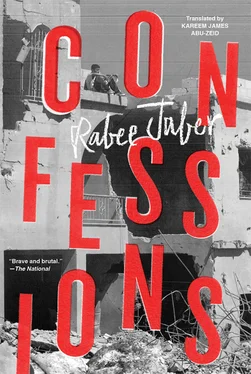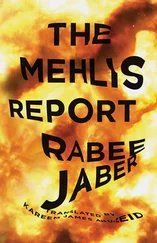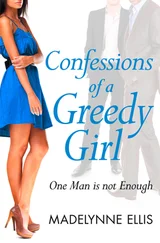I’m telling you this story because it’s linked with Ilya getting hit on the arm with the cane. I heard words like that a lot at my mother’s funeral, and then at my father’s. I used to think the people in the neighborhood loved and feared my father at the same time. But words like those, which I heard here and there, pointed me to a truth I hadn’t given sufficient thought to: they also loved him because he never stole, he never “got his hands dirty.”
And the blood on his hands? My father’s not here and I can’t ask him. I studied mechanical engineering in college. Don’t ask me why I chose that subject. The plan was to study engineering, some type of engineering: computer engineering, electrical, mechanical, civil, architectural — it didn’t matter. I was accepted into mechanical, so that’s what I studied. We could take an elective course the first semester, we could take any course we wanted from the arts and sciences division, not from the engineering school — you know how AUB is. I loved the upper floors of the university, not the lower ones. Engineering was in the basement, but I used to love climbing the steps to my elective class.
I took a class in the English literature department: we studied two of Shakespeare’s plays. I’d only ever read Shakespeare’s sonnets. The professor had a white beard, he smoked Galleon cigarettes, and his hands were massive, as if he’d worked on the land his whole life. He stood in front of the class, acting out scenes from those two plays, and as he acted them out, I thought back to things long past: my father suffered his second heart attack during those first few weeks I lived on campus.
I’ve already told you about the operation at the Rizq Hospital: that was after his first heart attack. If it hadn’t been for the heart attack, the doctor wouldn’t have known about the tumor in his brain. The heart attack was how they found the tumor. Before that, my father had been going to the optometrist because he’d begun to lose sight in his left eye. The optometrist was clueless — he couldn’t figure out what was happening. If he’d paid closer attention, he could have spared my father that first heart attack.
But the operation, though it saved my father’s life, wasn’t enough. They removed part of the tumor, but it was impossible to extract all of it — that would have damaged some of the cranial nerves and brain tissue. After the surgery, the doctor explained everything he’d done. They used delicate instruments, like tiny tongs, to gather up the malignant matter and remove it. They removed one tiny piece after another, moment after moment. The doctor worked on my father’s brain for three hours without stopping, until his hand couldn’t do it anymore. He removed the tumor bit by bit by bit. It was a mix of soft gelatinous matter and membranes and arteries: the difficulty of the surgery was the tumor’s location in the middle of a bunch of healthy nerves, in the cerebral cortex. The cancer had spread through the nerves like a system of roots. The slightest mistake would wreck the patient.
The first operation was related to what Ilya told me that night: when he was describing the day father went out in his slippers to identify my little brother’s body in the Hôtel-Dieu morgue, when he said, “He hit his head with his own hand,” I felt a throbbing in my brain. It was as if I were the one lying on my back beneath the glaring white lights, there, behind the closed doors. And as if my father, while he was punching his head on that distant day (before I became a part of his world), had given himself that deadly disease without realizing it.
That last thought might not be true. I believe it’s true now, but I don’t think it’s what was going through my mind in the Rizq Hospital that night. I can remember what I felt as I listened to Ilya talk: I felt my head split in two and I wanted — sitting in that waiting room — to grab at my head and keep it from splitting open. That’s what I felt: I, like my father, had a tumor in my brain. I didn’t have any thoughts beyond that. That’s as far as I got.
My father didn’t regain sight in the one eye after the first operation. In spite of that, more than one doctor assured us they considered the operation a success. Yes, the nerve was damaged, yes, the eye had gone out, but they still considered the operation a success: the tumor had been threatening more than just one nerve. The tumor had threatened to paralyze my father, and he had been saved from paralysis, even if he could only see out of one eye. His other eyelid was drooping now, and suddenly he seemed to have aged ten years in a single day.
He could only see out of his right eye. It was with that right eye that he watched me enter the house, my face dark, as I came back from Khalil Sufayr’s, from the home of Hilda’s father.
I told you about her. I’ll get to that part of my story. But I’m trying, to the best of my ability, to stick to a logical order. It’s important to have some order. My sister says I’ve got a knack for it. She might be right: in the entire dorm at AUB, my room was the only one that didn’t look like a garbage dump.
It was the middle of the Mountain War. During Ilya’s convalescence, while he was hanging out late into the night with his friends on the roof, his thigh wrapped in gauze, Najwa began training with the women Phalangist fighters in the fields near the town of Bikfaya, and then in the woods around Bsharri. She learned how to fire rocket-propelled grenades in the shade of the cedars: she trained with an RPG-7. When she came back carrying weapons that the enemy had carried (they were plunder), she told us the war was cruel and hard, and not everyone could bear it. Ilya asked her if she’d be willing to kill. Najwa replied that she had a friend who was several years younger, and in the training in Bsharri she saw her friend wearing ammunition belts around her neck and jumping over barricades and lying on her stomach behind a heavy Dushka machine gun (it was Jeannette Sawaya, who was later killed in the clashes that followed the “Tripartite Agreement”). Najwa said she saw her friend scream as she fired the Dushka , and that the bullets tore through stones and trees on the strip of land across the way. Her friend was young — maybe thirteen — but terrifying. She said that as her friend was holding onto the barrel of the Dushka to change the ammunition, the lead of the gun clung to the flesh of her fingers. She put some oil on her fingers and wrapped her hand in gauze, and you couldn’t see a single tear in her eyes. Ilya asked her why she’d gone to train if she was going to be so afraid. Najwa said she wasn’t afraid, she hadn’t said anything about fear.
Was she afraid? Ilya conducted my own training on the roof, while drinking arrack and munching on pickles. He showed me how to disassemble a weapon and clean it, and how to put it back together. He taught me how to get the ammunition clips ready. And he took me to the old playground and taught me how to shoot. At night on the roof, he was laughing half-drunk and oiling the spring of the sniper rifle while giving me lessons (if the wind is blowing in this direction, then you’ve got to aim like this; and if you’re firing an RPG-7, then you’ve got to remember that it’s a strange type of rocket, light in the back but heavy up front, and a strong wind will blow it off course… the gun you’ve got now will compensate for the wind if you aim it like this — you’ve got to shoot to the side of the target and the wind will take the bullet straight to its mark), beneath the thatched shelter where my father, years later, after the loss of my mother, hung up the canary cages and sat as though he’d become half a man, Ilya talked and laughed and forgot about what happened on Mount Lebanon and how the Mountain War ended… Even though East Beirut was full of refugees then, and half his friends had been lost in the valleys or were lying wounded in the hospitals. He laughed and told me I should pay attention. Who knows? he said: One day you might be forced to carry a weapon, for wars like this never end, and you might lose a battle but not the war: you win some battles and you lose some, and it will keep on going and going until one of us wipes out the other, it’s us or them, but we’ve been here for centuries and aren’t going anywhere. He kept on talking and drinking, and then he lay down on the foam mattress and fell asleep.
Читать дальше












